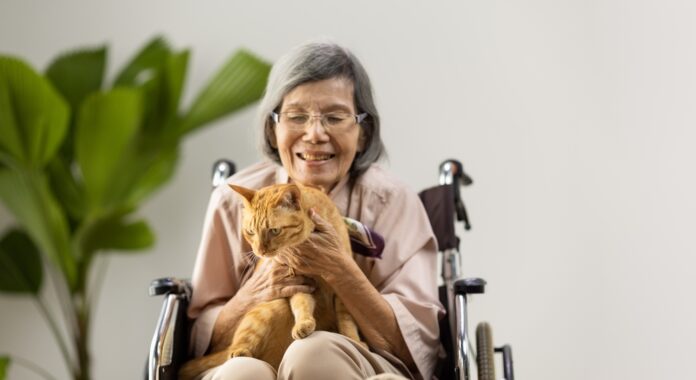As the golden years approach, many seniors find themselves grappling with feelings of isolation and loneliness. Interestingly, a simple solution might be curling up right at their feet: pets. The companionship of animals has been shown to offer immense benefits for the mental well-being of older adults.
The Healing Power of Pets
Pets have a unique way of bringing joy and purpose into the lives of seniors. Caring for an animal can instill a sense of responsibility and routine, which is particularly beneficial for those who may feel their days lack structure.
A study involving over 830 seniors revealed that those who owned pets were 36% less likely to report feelings of loneliness compared to those without animal companions. This indicates that pets can significantly enhance social connectedness and uplift mood among older adults. For seniors living alone, the impact is even more profound, as pet ownership was linked to a noticeable reduction in loneliness. Pets may serve as vital companions, offering both emotional support and a buffer against isolation.
Physical Health Benefits
Beyond emotional support, pets encourage seniors to engage in physical activities. Walking a dog, for instance, not only provides exercise but also increases opportunities for social interaction. Regular physical activity is crucial for maintaining cardiovascular health and mobility in older age.
The Human Animal Bond Research Institute (HABRI) reports that pet ownership saves the U.S. healthcare system approximately $23 billion annually. This is attributed to reduced doctor visits, lower obesity rates, and enhanced mental wellness among pet owners. Pets contribute to more active lifestyles, thereby lowering cardiovascular risks and promoting overall physical health.
Mental Health and Cognitive Function
Pets have a calming effect that can alleviate symptoms of depression and anxiety. Interacting with animals releases endorphins in the brain, reducing stress hormones like cortisol. This not only elevates mood but also enhances cognitive function.
Recent studies suggest that pet ownership may even slow cognitive decline. In a study published in JAMA Network Open, researchers found that seniors who owned pets experienced a slower rate of cognitive decline over an eight-year period compared to non-pet owners. This was particularly notable in areas such as memory and verbal fluency. Pet ownership was associated with better cognitive health, offering a protective effect against conditions like dementia.
Social Interaction and Community Engagement
Pets often serve as social catalysts, facilitating interactions between their owners and others. Walking a dog or visiting the vet are activities that can lead to conversations and connections with fellow pet lovers.
The Woofice Program addresses issues like social isolation by incorporating pets into community settings. Studies have shown that human-animal interactions (HAI) can significantly decrease feelings of loneliness and depression. Companion animals improve social connections, making them valuable allies in combating social isolation among seniors.
Practical Considerations for Seniors
While the benefits are clear, it’s important for seniors to consider practical aspects of pet ownership:
- Lifestyle and Mobility: Choosing a pet that matches the senior’s activity level is crucial. For those with limited mobility, low-maintenance animals like cats or birds might be ideal.
- Financial Responsibility: Owning a pet comes with costs such as food, grooming, and veterinary care. With urban veterinary expenses increasing by nearly 60% over the past decade, it’s wise to evaluate whether pet insurance is a worthwhile investment. Pet insurance can alleviate financial strain, providing peace of mind in case of unexpected medical costs.
- Support Systems: Organizations like Advanced Care offer services to assist seniors with pet care tasks they might find challenging. This includes help with feeding, grooming, and transportation to vet appointments. Caregiver support ensures safety for both the senior and their pet.
Adopting the Right Companion
When considering pet ownership, seniors might find adopting older animals beneficial. Senior pets are often calmer and already trained, making them suitable companions for older adults. It’s important to match the pet’s needs with the owner’s capabilities, potentially consulting with family members or professionals to make the best choice.
Conclusion
Pets offer more than just companionship for seniors; they provide emotional support, encourage physical activity, and enhance social interactions. By alleviating loneliness and promoting mental well-being, pets can significantly improve the quality of life for older adults.
As society continues to recognize the value of pets in supporting healthy aging, initiatives and support systems are evolving to make pet ownership more accessible for seniors. Whether it’s through policy advocacy, community programs, or individual efforts, embracing the bond between humans and animals holds the promise of a more fulfilling life for our aging population.


